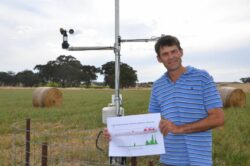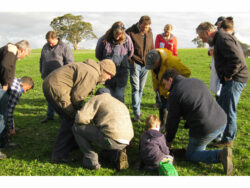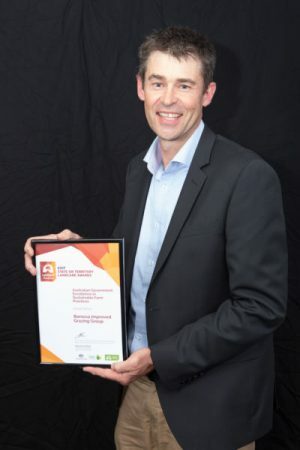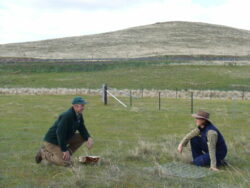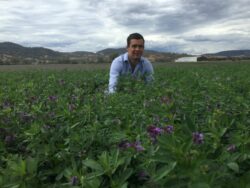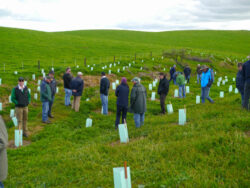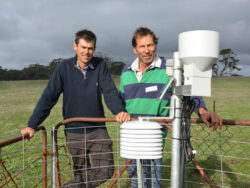Latest News & Resources
Indian summer creates flystrike concerns for SA
Sheep producers are being urged to be on high alert for blowfly strikes in their flocks, with warm, humid weather creating ideal conditions.
Both Elanco and Coopers Animal Health have reported a jump in sales of preventative products offering three months protection or more against flies.
Working together creates ‘BIGG’ outcomes
The Barossa Valley in South Australia is renowned for its food, wine and heritage, which stems from generations of vibrant farming communities learning and working together.
The Barossa Improved Grazing Group (BIGG) has applied the same approach to improving on-farm productivity and achieving natural resource management outcomes. With a common focus on sustainable grazing practices, BIGG links five different farming groups including sheep, beef, dairy and two local agricultural bureaus with a common focus on sustainable grazing enterprises.
BIGG win for Barossa farmers
The Landcare Association of SA Conference and Awards Dinner in Clare last week was a fruitful occasion for Barossa farmers and Landcarers.
The Barossa Improved Grazing Group was one of the lucky winners at Tuesday night’s awards presentation, held at Clare Golf Club.
BIGG picked up the gong in the Australian Government Excellence in Sustainable Farm Practices Award after being selected as one of three finalists.
BIGG wins state landcare award!
The State Landcare Awards were held in Clare on 12th September 2017 where BIGG won the Australian Government Excellence in Sustainable Farm Practices Award.
The award recognises an ‘individual, group or organisation that has demonstrated excellence and leadership in implementing integrated land management practices to a farm property or properties that protect soils, water and vegetation’.
Managing the fire recovery process
An extensive monitoring program, native plant identification, and soil testing has helped producers across Eden Valley, Hutton Vale, and areas near the Barossa Valley in South Australia recover and sustainably manage native grass pastures that are critical within their livestock grazing systems.
James Graetz – SA citizen of the year & Mid-Murray council citizen award
In January 2017, Keyneton farmer James Graetz was awarded the SA citizen of the year in a ceremony at Government house in Adelaide. He also received the Mid- Murray council citizen award. James is a long time member of the Angaston Bureau, including recently serving as chairperson.
Lucerne trial results highlighted at Barossa conference
LUCERNE was found to be more tolerant than expected from previous studies, to highly acidic soils in a recent project completed by South Australian Research and Development Institute’s (SARDI) principal research scientist Dr Alan Humphries.
State Resilient Australia Awards
In December 2016 BIGG/Angaston Ag Bureau received a Highly Commended Award for our Eden Valley bushfire recovery and resilience program. The program assisted producers to optimise the re-building of native pasture and livestock in the wake of the fire.
The State Resilient Australia Awards recognise initiatives that improve community safety and resilience, and empower individuals, communities and organisations in the preparation, recovery and response to emergency events.
Demonstrating watercourse rehabilitation with native plant communities
Rehabilitating a watercourse improves water quality, reduces erosion, provides habitat for birds and improves on-farm production. However, which are the best plant communities to do the job?
Measure moisture for better pasture management
Measuring subsoil moisture levels can take the guesswork out of planning future stocking rates, a new study by the Barossa Improved Grazing Group (BIGG) suggests.

